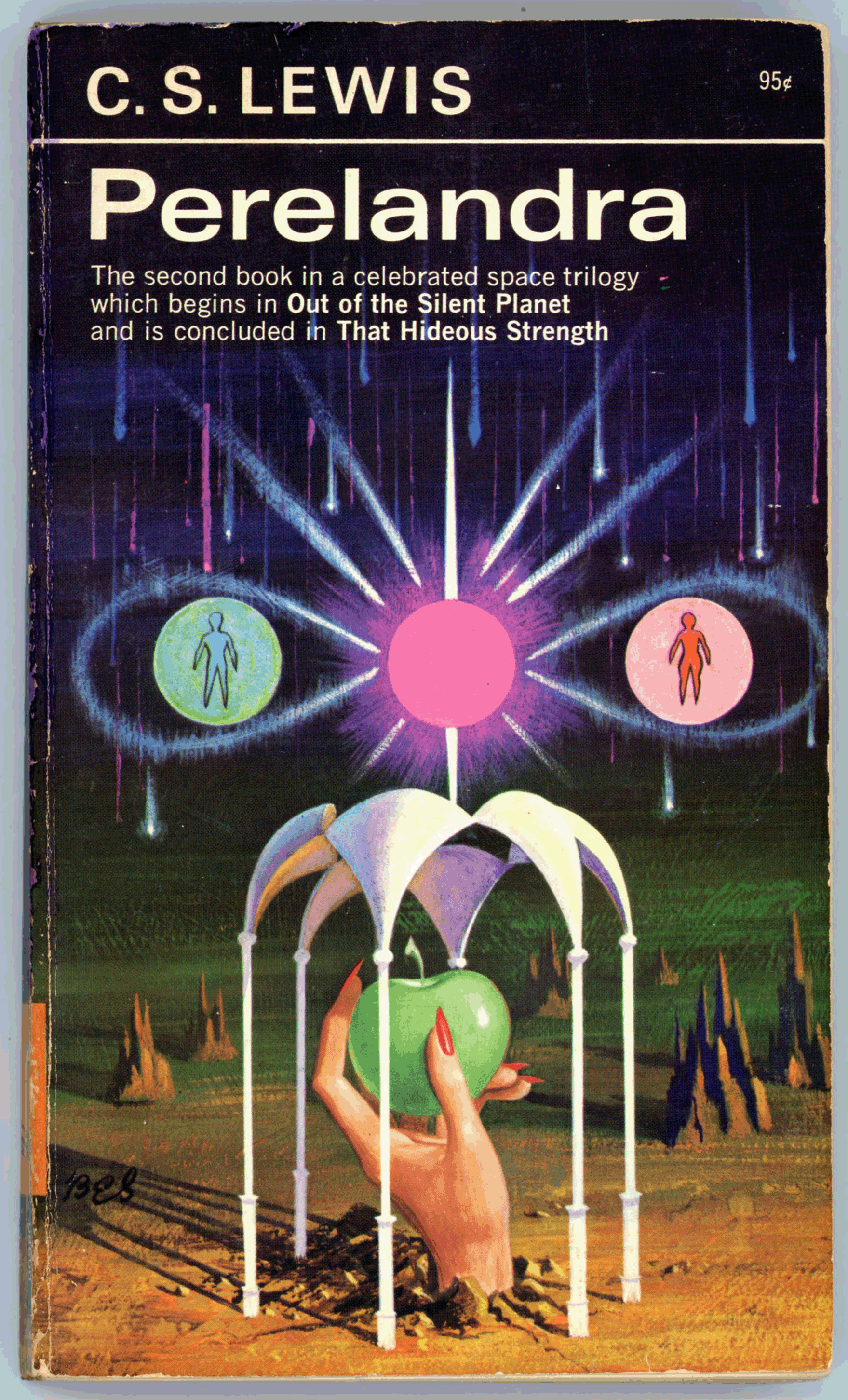 “My dear Ransom,
“My dear Ransom,
I wish you would not keep relapsing on to the popular level.
The two things are only moments in the single, unique reality.
The world leaps forward through great men
and greatness always transcends mere moralism.
When the leap has been made our ‘diabolism’
as you would call it becomes the morality of the next stage;
but while we are making it, we are called criminals, heretics, blasphemers…”
“How far does it go?
Would you still obey the Life-Force
if you found it prompting you to murder me?”
“Yes.”
“Or to sell England to the Germans?”
“Yes.”
“Or to print lies as serious research in a scientific periodical?”
“Yes.”
“God help you!” said Ransom.
* * * * * * * * * * *
It looked at Ransom in silence and at last began to smile.
We have all often spoken –
Ransom himself had often spoken –
of a devilish smile.
Now he realized that he had never taken the words seriously.
The smile was not bitter, nor raging, nor, in an ordinary sense, sinister;
it was not even mocking.
It seemed to summon Ransom, with horrible naivete of welcome,
into the world of its own pleasures,
as if all men were at one in those pleasures,
as if they were the most natural thing in the world
and no dispute could ever have occurred about them.
It was not furtive, nor ashamed, it had nothing of the conspirator in it.
It did not defy goodness, it ignored it to the point of annihilation.
Ransom perceived that he had never before seen anything
but half-hearted and uneasy attempts at evil.
This creature was whole-hearted.
The extremity of its evil had passed beyond all struggle
into some state which bore a horrible similarity to innocence.
It was beyond vice as the Lady was beyond virtue.
________________________________________
You can view the cover of Avon Books’ 1957 edition of Perelandra (Avon # T-157), here.


